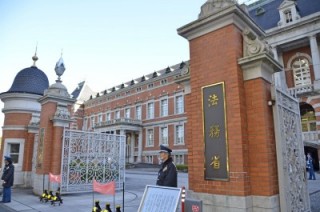Loading
Search
▼ Japan Clarifies Special Criteria Used In Deportation Decisions
- Category:Tourism
Japan's immigration agency on Tuesday released more detailed guidelines that allow the justice minister to grant special residence permission to foreign nationals who are facing deportation, clarifying the factors the minister considers when making a decision.
The minister has the authority to allow individuals to remain in the country after reviewing positive and negative factors. Although published guidelines exist, the ministry has provided more specifics to improve transparency, but said its process is unchanged.
In the latest guidelines, the Immigration Services Agency newly details "positive elements" considered, such as the extent to which an individual has integrated into and contributes to their community or if they have had a child or children enrolled in the Japanese school system for an extended period.
"Negative elements" include an assessment based on how long they have overstayed their visa, their failure to meet the conditions of their release from detention, and whether they have repeatedly caused a public nuisance in their community.
Justice Minister Ryuji Koizumi said the ministry intends to "improve transparency by increasing the number of (available) example criteria."
The guidelines were reviewed after the decision was made to create an application-based system for requesting special residence permission under the revised Immigration Control and Refugee Recognition Law, which the Diet passed in June, and its supplementary resolution called for consideration of the interests of children.
In 2022, special residence permission was granted to 1,525 people, according to the agency, with the minister deciding on their applications on a case-by-case basis.
- March 5, 2024
- Comment (0)
- Trackback(0)


